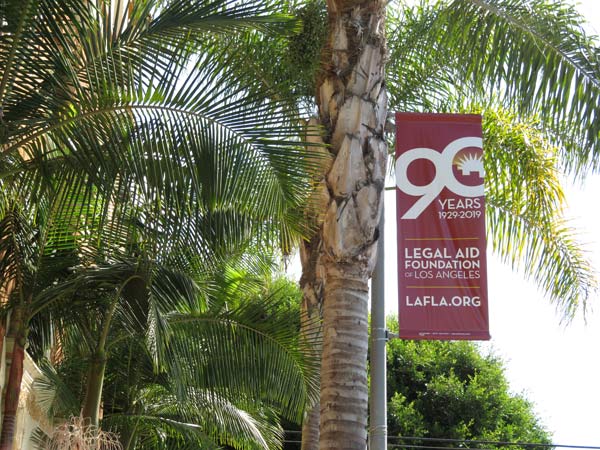Car Auctioned Despite Man’s Participation in Community Assistance Parking Program
LOS ANGELES, October 17, 2019 — A person experiencing homelessness, Joseph Safuto, has sued the City of Los Angeles, challenging the city’s practice of towing vehicles as a mechanism for collecting debt – in this case two unpaid parking tickets that resulted in a lapsed registration. The lawsuit challenges the city’s practice of towing vehicles without a public safety justification solely because of lapsed registration, and it challenges the way the city conducts towing hearings.
“I put a lot of effort into getting the car registered, but I had those two parking tickets that were holding it up. I was trying to work them off through CAPP, and they towed it anyway,” said Safuto. “I was already struggling to get me and my daughter housing and to get on my feet again. When my car was towed, it pushed me into a deeper hole, not just financially but also emotionally. It was debilitating, and all of this for two parking tickets. It’s wrong to leverage a small debt to the city to take people’s property.”
The Legal Aid Foundation of Los Angeles, Western Center on Law & Poverty, and the American Civil Liberties Union Foundation of Southern California are representing Safuto.
“At a time when the city should be focusing its resources on moving people out of homelessness, Mr. Safuto’s case illustrates how the City’s continued reliance on law enforcement and punitive measures actually perpetuate the cycle of poverty,” said Shayla Myers, senior attorney at Legal Aid Foundation of Los Angeles.
Safuto suffers from mobility disabilities that prevent him from working. He used his vehicle to visit his nine-year-old daughter, attend medical appointments, and run errands.
In April 2019, the Los Angeles Police Department ordered Safuto’s vehicle towed, even though the car was not impeding traffic or impacting public safety in any way. The justification for the tow was that his registration had expired, but he was prevented from re-registering his vehicle, even though he had paid the registration fee. The city had a hold on his registration because he had not paid two outstanding parking tickets, totaling about $350.
At the time of the tow, Safuto was enrolled in the Community Assistance Parking Program, which allows people experiencing homelessness to pay off outstanding parking tickets by performing community service. He was scheduled to participate in the program on the day his vehicle was towed.
“Leaders of California and Los Angeles say they are working to get people out of poverty and out of homelessness, but actions like these work against individuals like Mr. Safuto who try their best to stay afloat and follow the law,” said Rebecca Miller, an attorney at Western Center on Law & Poverty. “Our state can’t afford city policies that punish people for poverty.”
Safuto informed the officer who towed his vehicle that he had submitted necessary proof and fees to register his car, and that he was participating in the Community Assistance Parking Program, but the officer had the car towed anyway.
Safuto later presented this information at an administrative hearing, where he contested the tow, but the administrative officer only considered that the car had not been registered at the time of the tow.
Because Safuto was unable to pay the fees associated with the tow — including a $115 City of Los Angeles “vehicle release fee,” a $41.50 daily storage fee, and a $70 lien processing fee — the towing company sold his car at lien sale.
Despite the fact that the car was sold, Safuto was charged $1004.50 to cover the lien and he still had to do the community service to work off the parking ticket debt.
“Everyone has a right to due process and security in their belongings, and cars are no exception,” said Julia Devanthéry, the Dignity for All staff attorney at the ACLU of SoCal. “Vehicles are essential for many Angelenos — especially those experiencing homelessness. The city should be investing in affordable housing instead of cutting people’s essential lifelines to work and safety by towing their cars for debt collection.”
This action is an amendment to a petition filed in July. Safuto seeks a court order to ensure that the City tows vehicles only when it is necessary for public safety, rather than for debt collection. Safuto also seeks to reverse the decision of the administrative hearing officer and recover all costs associated with the tow, as well as the cost to replace his vehicle.
About Legal Aid Foundation of Los Angeles
Legal Aid Foundation of Los Angeles (LAFLA) seeks to achieve equal justice for people living in poverty across Greater Los Angeles. LAFLA changes lives through direct representation, systems change and community empowerment. It has five offices in Los Angeles County, along with four Self-Help Legal Access Centers at area courthouses and three domestic violence clinics to aid survivors.
About Western Center on Law & Poverty
Western Center on Law & Poverty fights for justice and system-wide change to secure housing, health care, racial justice and a strong safety net for low-income Californians. Western Center attains real-world, policy solutions for clients through litigation, legislative and policy advocacy, and technical assistance and legal support for the state’s legal aid programs. Western Center is California’s oldest and largest legal services support center.
About ACLU of Southern California
The American Civil Liberties Union of Southern California was founded in 1923 to defend and secure rights guaranteed by the Constitution – free speech, religion, the rights of assembly, freedom of the press, and due process under the law — and extend them to people who have been excluded from their protection. Our work is accomplished through litigation in the courts, public education and lobbying.

